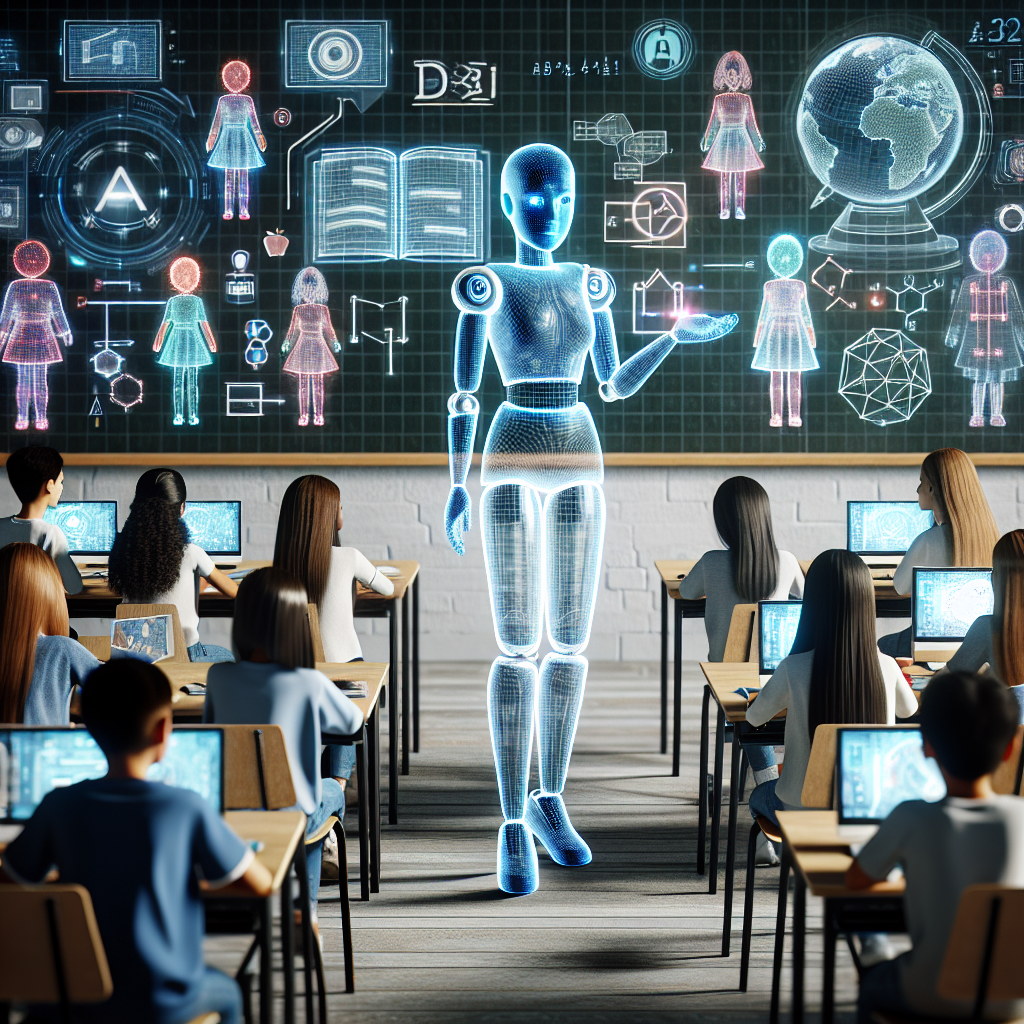In recent years, artificial intelligence (AI) has been making waves in various industries, revolutionizing the way things are done. Education is no exception, with AI-powered learning becoming increasingly popular and transforming the way students learn and educators teach. This article will explore the future of education with AI-powered learning and how it is shaping the way we acquire knowledge.
AI-powered learning is the use of artificial intelligence technologies to enhance the learning process. These technologies include machine learning, natural language processing, and deep learning, among others. These tools are utilized to create personalized learning experiences for students, automate administrative tasks for educators, and provide valuable insights into student performance.
One of the key advantages of AI-powered learning is its ability to provide personalized learning experiences. With the use of algorithms, AI can analyze a student’s strengths and weaknesses, learning style, and pace, and tailor the content and delivery of lessons to meet their individual needs. This personalized approach helps students to learn at their own pace, focus on areas where they need improvement, and ultimately achieve better academic outcomes.
AI-powered learning also has the potential to enhance teacher effectiveness. By automating administrative tasks such as grading, lesson planning, and attendance tracking, educators can focus more on teaching and providing support to their students. AI can also provide valuable insights into student performance, identifying areas where students are struggling and suggesting interventions to help them succeed.
Furthermore, AI-powered learning can improve access to education for students in remote or underserved areas. By providing online learning platforms powered by AI, students can access high-quality education regardless of their location. This can help bridge the gap between urban and rural education, providing equal opportunities for all students to learn and succeed.
The future of education with AI-powered learning is bright, with endless possibilities for innovation and improvement. As AI technologies continue to advance, we can expect to see even more personalized, efficient, and effective learning experiences for students and educators alike.
FAQs:
Q: How can AI-powered learning benefit students?
A: AI-powered learning can benefit students by providing personalized learning experiences, identifying areas where they need improvement, and helping them to learn at their own pace. This can lead to better academic outcomes and a deeper understanding of the material.
Q: Will AI replace teachers in the classroom?
A: AI is not meant to replace teachers but to enhance their effectiveness. By automating administrative tasks and providing valuable insights into student performance, AI can help educators focus more on teaching and providing support to their students.
Q: Is AI-powered learning only for advanced students?
A: AI-powered learning is beneficial for students of all levels. Whether a student is struggling with a particular subject or looking to challenge themselves with more advanced material, AI can tailor the learning experience to meet their individual needs.
Q: How can AI-powered learning improve access to education?
A: AI-powered learning can improve access to education by providing online learning platforms that are accessible to students in remote or underserved areas. This can help bridge the gap between urban and rural education and provide equal opportunities for all students to learn and succeed.
In conclusion, AI-powered learning is the future of education, with the potential to transform the way we acquire knowledge and improve academic outcomes for students. By providing personalized learning experiences, enhancing teacher effectiveness, and improving access to education, AI-powered learning is revolutionizing the way we learn and teach. As AI technologies continue to advance, we can expect to see even more innovative and efficient learning experiences that benefit students, educators, and society as a whole.

